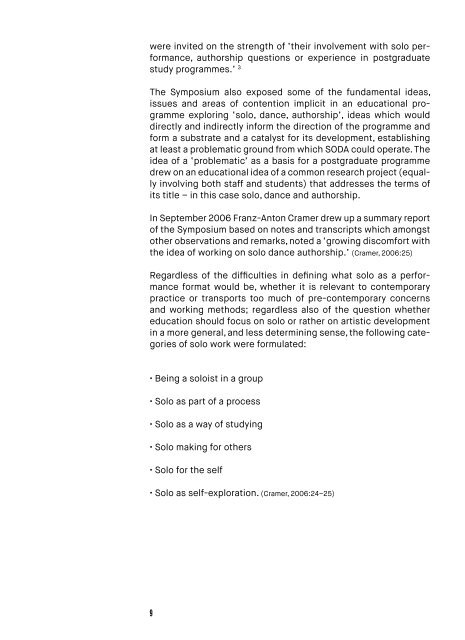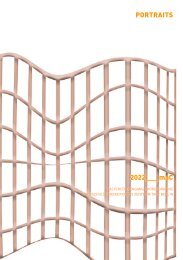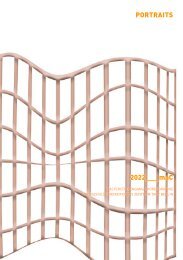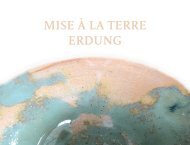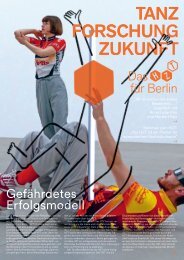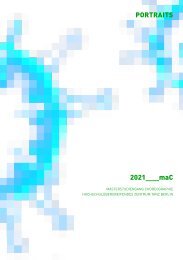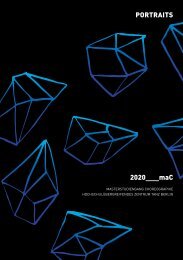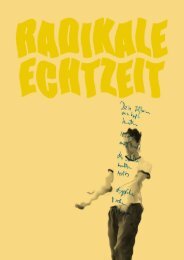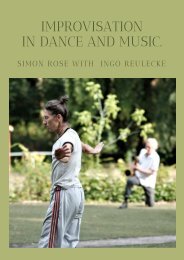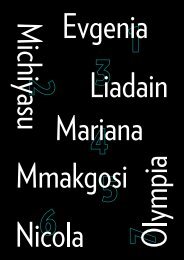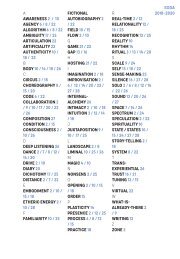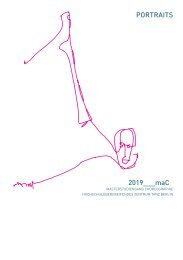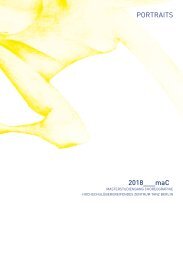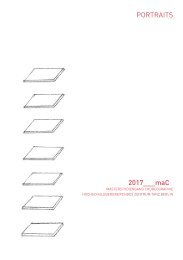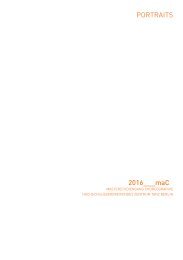A Decade of MA Solo Dance Authorship
In the frame of the 10th anniversary of MA SODA in 2017, the independent writer, editor and consultant and former guest professor Richard Allsopp edited the publication “SODA – A DECADE OF MA SOLO DANCE AUTHORSHIP”. “The aim of this book on a decade of SODA at the HZT Berlin is to provide a retrospective insight into the imaginative, discursive and educational spaces that the SODA programme has opened-up since its beginning in 2007. [...]" Ric Allsopp, November 2017
In the frame of the 10th anniversary of MA SODA in 2017, the independent writer, editor and consultant and former guest professor Richard Allsopp edited the publication “SODA – A DECADE OF MA SOLO DANCE AUTHORSHIP”.
“The aim of this book on a decade of SODA at the HZT Berlin is to provide a retrospective insight into the imaginative, discursive and educational spaces that the SODA programme has opened-up since its beginning in 2007. [...]" Ric Allsopp, November 2017
Create successful ePaper yourself
Turn your PDF publications into a flip-book with our unique Google optimized e-Paper software.
were invited on the strength <strong>of</strong> ‘their involvement with solo performance,<br />
authorship questions or experience in postgraduate<br />
study programmes.’ 3<br />
The Symposium also exposed some <strong>of</strong> the fundamental ideas,<br />
issues and areas <strong>of</strong> contention implicit in an educational programme<br />
exploring ‘solo, dance, authorship’, ideas which would<br />
directly and indirectly inform the direction <strong>of</strong> the programme and<br />
form a substrate and a catalyst for its development, establishing<br />
at least a problematic ground from which SODA could operate. The<br />
idea <strong>of</strong> a ‘problematic’ as a basis for a postgraduate programme<br />
drew on an educational idea <strong>of</strong> a common research project (equally<br />
involving both staff and students) that addresses the terms <strong>of</strong><br />
its title – in this case solo, dance and authorship.<br />
In September 2006 Franz-Anton Cramer drew up a summary report<br />
<strong>of</strong> the Symposium based on notes and transcripts which amongst<br />
other observations and remarks, noted a ‘growing discomfort with<br />
the idea <strong>of</strong> working on solo dance authorship.’ (Cramer, 2006:25)<br />
Regardless <strong>of</strong> the difficulties in defining what solo as a performance<br />
format would be, whether it is relevant to contemporary<br />
practice or transports too much <strong>of</strong> pre-contemporary concerns<br />
and working methods; regardless also <strong>of</strong> the question whether<br />
education should focus on solo or rather on artistic development<br />
in a more general, and less determining sense, the following categories<br />
<strong>of</strong> solo work were formulated:<br />
• Being a soloist in a group<br />
• <strong>Solo</strong> as part <strong>of</strong> a process<br />
• <strong>Solo</strong> as a way <strong>of</strong> studying<br />
• <strong>Solo</strong> making for others<br />
• <strong>Solo</strong> for the self<br />
• <strong>Solo</strong> as self-exploration. (Cramer, 2006:24–25)<br />
9


